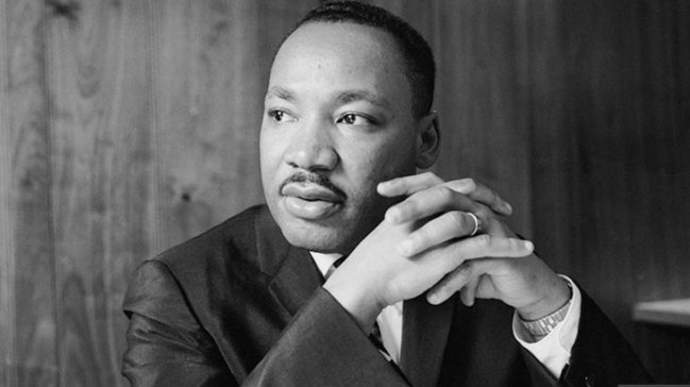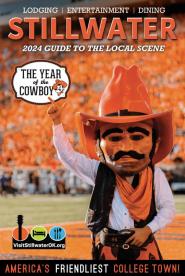(STILLWATER, Oklahoma, Jan. 17, 2022) — Hundreds gathered on Oklahoma State University’s campus Monday afternoon, speaking to one another about the legacy of Dr. Martin Luther King Jr. and marching to honor it.
For the second consecutive year, OSU and Stillwater Community United (SCU) collaborated on the unity march, which included speakers like OSU President Kayse Shrum and Stillwater Mayor Will Joyce. The SCU march joined with the OSU crowd of students, professors and faculty at the Spears School of Business to hear university and city leaders speak.
Dr. Jason Kirksey, OSU’s vice president for institutional diversity and chief diversity officer, said that meeting every year on Martin Luther King Jr. Day strengthens the relationship between the school and community, as well as reminds everyone what the holiday is really about: coming together.
“The continued cultivation and strengthening of this symbiotic partnership is integral to all of us achieving Dr. King’s dream,” Kirksey said. “As we are gathered here today, I encourage and challenge each of us to recognize that the meaning of Dr. King’s dream is what matters, not just the march. Dr. King’s legacy continues to serve as a call to action for all of us every day to engage in the work of justice, equality and love of humanity. Hopefully all of us listen to each other, commit to learn from one another and aspire to be better today than we were yesterday.”
With her family behind her, Shrum came to the stage next. She spoke about how King’s message has made a difference in her life. A decade ago, Shrum and First Cowboy Darren Shrum adopted three Ethiopian sons — Joseph, Kilientn and Kason.
“As the mother of a diverse family, I am equally mindful of Martin Luther King Jr’s impact on my family,” Dr. Shrum said. “I have a deep gratitude for his tenacity and persistence in the fight against racial inequality.”
Shrum said a passage from King really stuck out to her in particular.
“I was drawn to this text: ‘I have a dream that my four little children will one day live in a nation where they will not be judged by the color of their skin, but by the content of their character,’” Shrum said. “That is my desire for my family and for the Cowboy family, that everyone at Oklahoma State University not only feels welcomed, but valued.”
Joyce said even though it has been more than 50 years since King’s death, there is still work to do, and he thinks events like Monday’s do make a positive difference.
“His life work taught us not only to recognize the reality of racial injustice and to be honest with ourselves about the inequities around us, but more so to do something about it and improve the world we live in,” Joyce said. “That work continues today. We are here in recognition that the dream Dr. King envisioned more than half-century ago is still in our future. We have a role in making it become a reality.”
The march continued through OSU’s campus after Joyce finished speaking, finishing at The McKnight Center for the Performing Arts where student keynote speaker Chideha Kanu challenged the audience to carry the march’s momentum forward.
“Every MLK Day and Black History Month, corporations, organizations, celebrities and even ourselves, we go online and we post a bunch of MLK quotes, pictures and videos,” Kanu said. “For a lot of people, that is where it stops. For corporations that ‘go above and beyond,’ they have diversity, equity and inclusion training, and for them that is where it stops. We forget that the civil rights movement lasted as long as it did. …
“It is because there is no quick solution to racism, classism or any form of injustice handed out to any minority.”
Kanu graduated with his bachelor’s degree in May 2021 and is now working on his Master of Business Administration degree. He previously served as the Residence Halls Association president on campus and marched in the MLK Day march last year, as well.
A Nigerian-American who was born in Oklahoma City, Kanu spent the first eight years of his life in the state before moving back to Nigeria with his family. He said his upbringing has helped him relate to people from many walks of life. And he said seeing life from all those different angles helped him understand that King’s dream is still relevant and possible today.
“I learned what it was like to live in the largest Black nation in the world and follow that up by attending a predominantly white institution in Stillwater, Oklahoma,” Kanu said. “... One of the biggest things that I learned is that regardless of what we do, because we are in a community of people from different walks of life, race, ages and classes, there are certain things that we will not understand about the person next to us. No matter what, there are certain experiences they may share that we will not be able to relate to and that is totally fine.
“That is because no matter where you are from, what you do, there is a language we can all speak and I believe we can all speak fluently, and that is love.”




